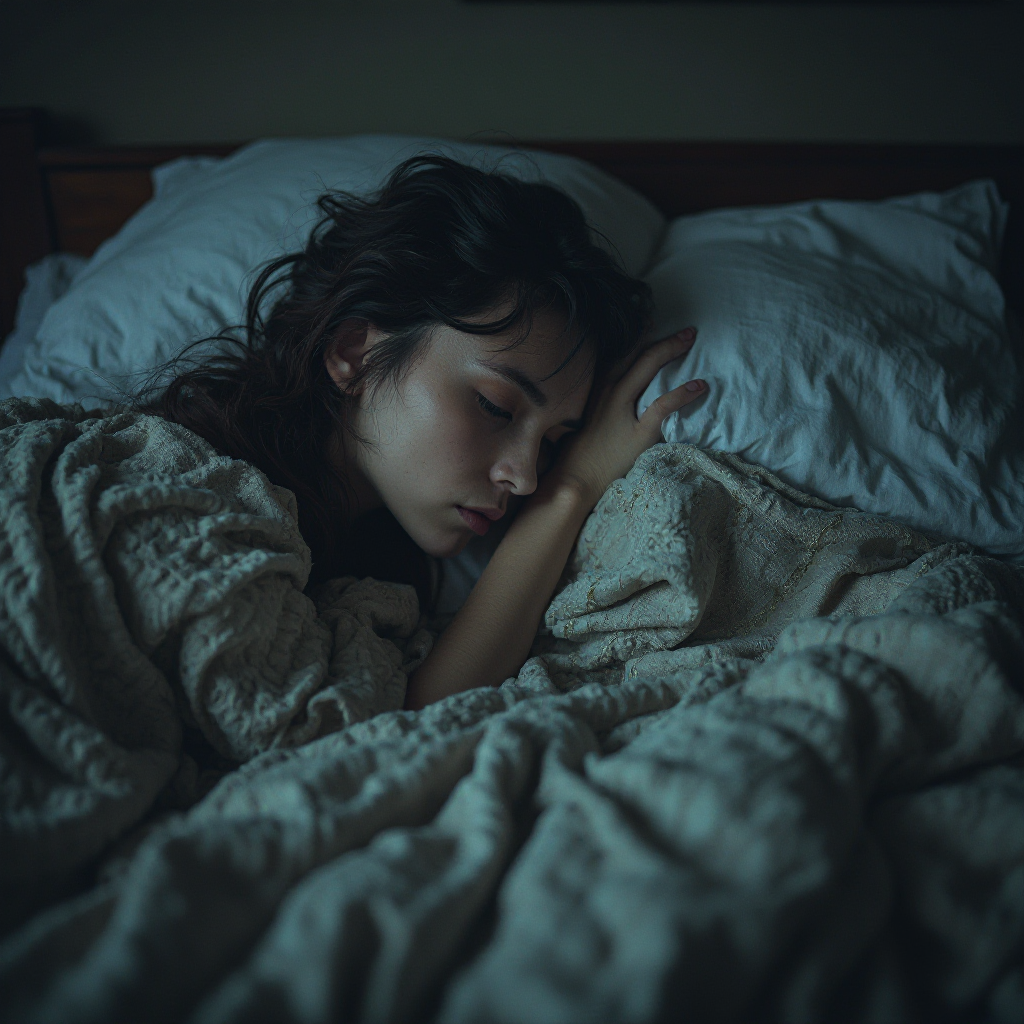The Science Behind Sleep Paralysis: What You Need to Know
The Science Behind Sleep Paralysis: What You Need to Know
The Science Behind Sleep Paralysis: What You Need to Know
Discovering the strange phenomenon of sleep paralysis, we try to understand when this usually happen, the reasons behind it, and how to spot its signs. This guide, clear and simple, share insights into the science of sleep paralysis, tips to handle it, and helps you to see where it fits in sleep health. With this knowledge, you can clear the mystery around this experience and maybe make your well-being better?
### Intro to Sleep Paralysis
Sleep paralysis is when you can’t move or talk while you’re falling asleep or waking up. Even though many people feel this way, it is still a mysterious part of sleep. During these times, people are awake but can’t move their muscles, sometimes seeing things that aren’t really there or feeling scared.
Knowing about sleep paralysis is important ’cause it can be scary and mess up your sleep and overall health. Even though lot’s of myths says its cause by ghosts or maybe a curse, science tells us it’s based on how sleep works. Knowing the truth about sleep paralysis makes it less weird and less scary.
Thinking sleep paralysis is madness or spirits is wrong. Actually, it ain’t dangerous and is connected to how we sleep, especially REM(Rapid Eye Movement) sleep, and it can happen to fit, active people.
### When Sleep Paralysis Happen: Timing and Patterns
Sleep paralysis usually happens during certain sleep times, especially between being awake and sleeping. It’s very linked with REM sleep, the time when we dream the most. During this REM, our body shuts down movement so we don’t act out dreams.
**Usual Occurrence During the Night**
Episodes usually happen as you doze off (hypnagogic) or wake up (hypnopompic). They’re usually short, only lasting few seconds to minutes but can feel very real.
**Link to REM Sleep**
Since REM sleep includes eye moving quick and muscle stop, sleep paralysis tends to relate to REM sleep being messed up. If REM breaks into wake-up time or pops up wrongly, paralysis can kick in.
**When at Night**
It often hit during early dawns or soon after you slept or got up again. These hits are maybe more common if your sleep times is all wrong or you have sleep troubles.
**How Often and Examples**
Some folks get it once or not much, but others have it over the weeks or months. Stress, bad sleep or sleep issues might make it happen more.
### Causes and Reasons of Sleep Paralysis
Knowing why sleep paralysis hit means we gotta look at some body, mind, and what people do each day.
**Broken Sleep Patterns and Weird Sleep Times**
Bad sleep planning, like work shifts or trips across time zones, can mess up regular sleep and make sleep paralysis more likely.
**Not Enough Sleep and Stress**
Not catching enough sleep and stress go hand in hand to REM sleep issues and, yes, episodes.
**Sleep Troubles**
Stuff like narcolepsy or being unable to sleep soundly makes people more likely to have it. Narcolepsy, more so, mix up REM sleep wrong, leading to paralysis.
**Position in Sleep**
Sleeping at all means on your back can cause more risk of having paralysis buzz. Changing breathing or fragile sleep patterns can be reasons.
**Mental Health State**
Worry, bad memories, and such can hike the chance of you getting hit. Acting dreams from REM behavior disorder (RBD) also play a role.
**Drugs and Pills”
Drugs and drink, especially stuff hitting the brain law, can twist sleep times into what sleep paralysis likes to find more.
**Working Out or Pain**
Too much fitness or being achy all the time messes sleep, possibly twisting REM sleep, causing paralysis odds to go up.
So, how do you think all this might play a part in your own sleep world? Is the science behind it interesting enough for you to explore more? Maybe thinking about this will help unravel the sleep story and make you sleep better altogether.
Noticing the Signs and Feelings During Sleep Paralysis
When folks go through sleep paralysis, they usually say they feel some stuff that’s really clear:
Can’t Move or Talk:
This kind of stuckness happens when ya waking up or falling asleep. The person is awake, but they can’t move their arms or talk.
Seeing and Hearing Things:
Bright dreams, like spotting shady shapes or catching weird sounds, are pretty common and might be scary.
Scary Feelings or Can’t Breathe:
A lot of people say they feel super scared, think something bad is coming, or like they’re being choked.
Pressing Feel:
A pressing feel on the chest or a body that can’t move is said often, which sometimes makes people panic.
How Long and Different It Can Be:
These times it happen usually last a few seconds or minutes, and they’re not always the same. Some people feel more times in a little time.
Knowing these signs is key for telling sleep paralysis apart from other sleep or mind health stuff.
Real Life Tips and Ideas for Handling It
Sleep paralysis can be, like, stressing you out, but some things help ya deal with it and have it less often:
Hints for Having It Less:
Keeping your sleep same every day, not losing sleep, and handling stress can make it happen less.
Good Sleep Habits:
Having a chill time before bed, making sure your bed is comfy, and not taking caffeine or eating big meals before bed help you sleep good with no breakups.
Chill Out and Calm Down Ways:
Doing mindfulness, peace talks, or slow-breathing workouts help you handle worry and sleep better.
When to Call Doctor:
If it keep happening a lot, or it’s real bad, specially if ya have other sleep troubles like REM jumping disorder, talk to a doctor or sleep teacher.
Dealing with Stuckness:
Think calm stuff, breathe slow, or try moving tiny bits like a finger or toes can help stop the stuck time. Knowing it’s short can calm them down.
Wrapping it Up
To finish, sleep paralysis mostly happens during sleep changing time, mainly during REM sleep, often when you going to sleep or waking up. Why it happens involves life-tire, stress, sleepy time issues, and how you live. Knowing the signs – like being stuck, seeing things, and being scared – is needed for handling it right.
Doing good sleepy stuff, being stress-free, and learning about sleep paralysis can really make sleeping feel better and help you feel better too. Though these times can be scary, knowing what’s up and using helpful ways gives power to folks for handling it better and less in your life.
By figuring out when does sleep paralysis happen and what’s causing it underneath, maybe you can clear away fears, get safer sleep, and make life better. What do you think might help you next time it happen?
REM cycle, vivid dreaming, sleep stages, triggers of sleep paralysis, causes of sleep paralysis, symptoms of sleep paralysis, nightmares, sleep disorders, anxiety, sleep hygiene,
students, sleep enthusiasts, mental health professionals, individuals experiencing sleep issues, curious readers,







Leave A Comment